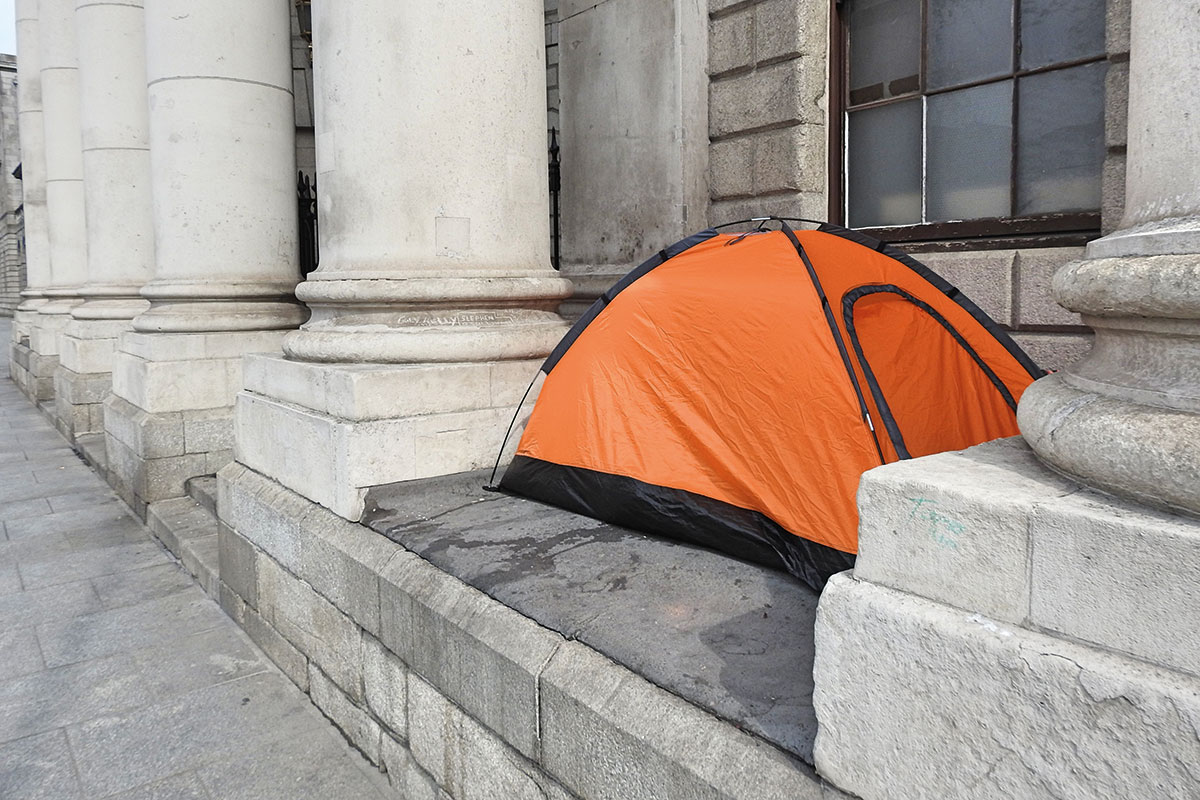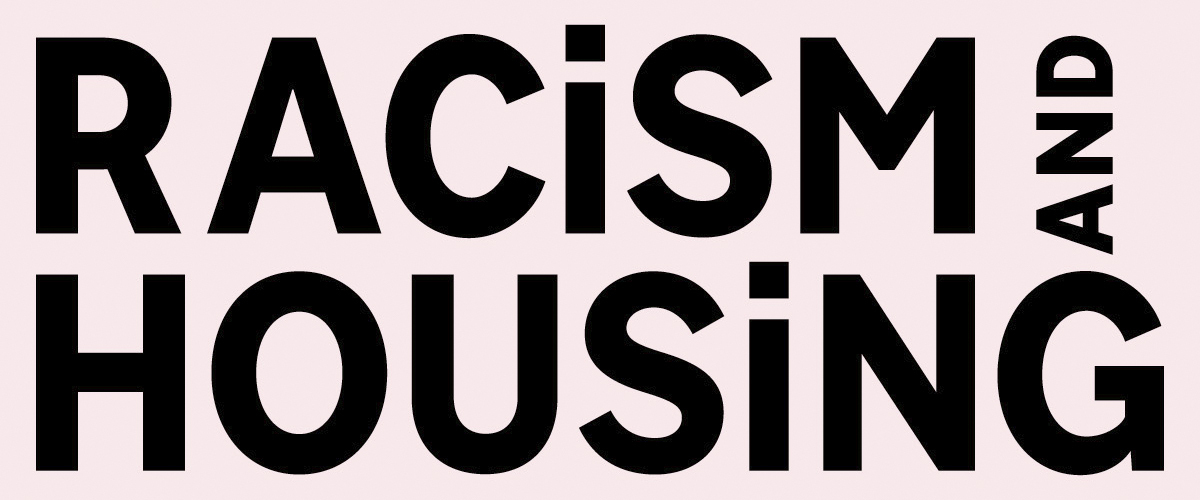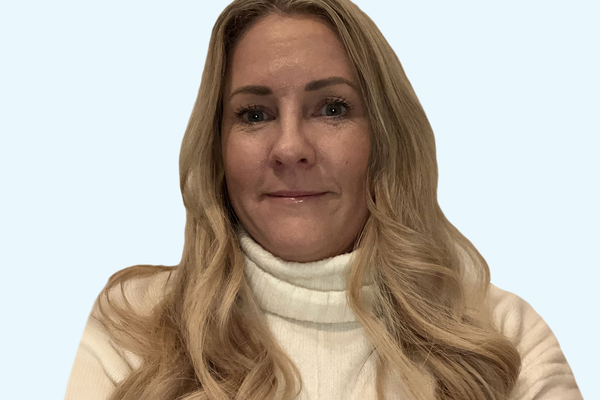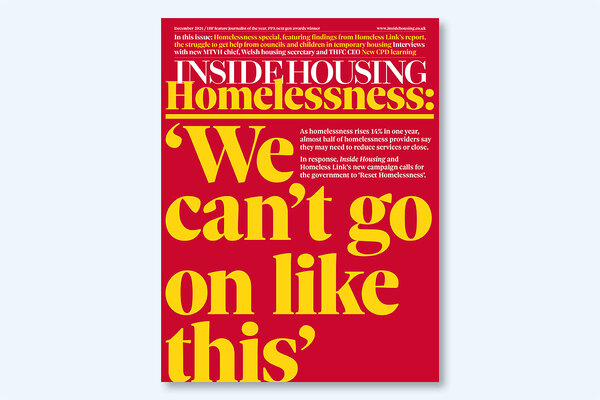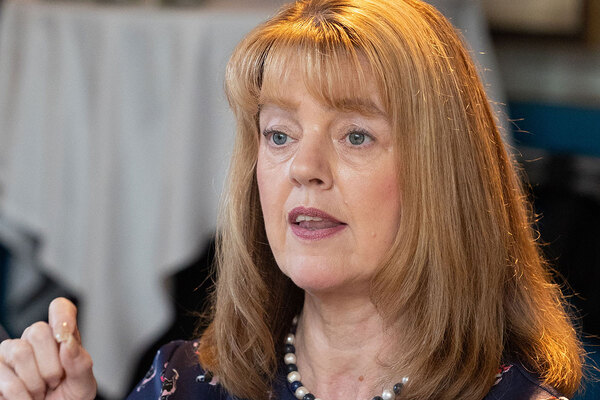You are viewing 1 of your 1 free articles
How Cardiff landlords are tackling under-representation

Two projects in the Welsh capital aim to increase the number of housing association staff and board members from Black, Asian and minority ethnic backgrounds. Jess McCabe reports. Illustration by Spencer Wilson
Two years ago, social landlords were signing up by the dozen to statements of support for the Black Lives Matter movement. But how do you go from statements to real change?
One answer may lie in Cardiff, Wales. Two new projects by community housing associations on the representation of Black, Asian and minority ethnic people are about to get off the ground.
Pathway to Board will train potential board members from Black, Asian and minority ethnic communities to sit on the boards of housing associations, charities or businesses, while Get into Housing aims to provide an entry into housing jobs. Inside Housing spoke to some of the people involved in delivering these projects.
Why Cardiff? The city has a long history of ethnic diversity. The docks area, Butetown, has one of the oldest multicultural communities in the UK, and one of the nation’s largest Somali communities, dating back to the 19th century. Eight per cent of the city is Asian.
Yet, until recently, the staff, senior leadership and boards of most of the landlords based here were overwhelmingly white. Last year, Tai Pawb, a Welsh charity promoting equality in housing, surveyed organisations signed up to its Deeds not Words anti-racism pledges, and found that only 5.5% of board members and 4.9% of staff were from Black, Asian and minority ethnic backgrounds.
Back in 2020, Cardiff Community Housing Association (CCHA) was responding to this with an effort to diversify its own board. “About 25-30% of our tenants are Black or Asian, and our board was very white,” explains Hayley Selway, chief executive of the 3,000-home landlord. (At this point, only one board member was from an ethnic minority, and they had been appointed late in the previous year.)
The board also needed to recruit new members with specific skill sets, so there was an opportunity for change. CCHA asked its recruitment agency to look for potential board members “who happen to be Black and Asian, but [who] were also accountants, lawyers [and] had community development expertise, to start getting a cohort of people [together] that potentially want to get on boards and become trainees”, Ms Selway recalls.
This led to 45 video applications, 80% of which were from Black and Asian candidates. CCHA was able to successfully recruit three board members and a trainee, which left it with a board that was 50% white and 50% Black and Asian.
“We can no longer continue the way we make decisions in the boardroom, which subsequently feeds through to the organisation”
“That started a narrative between some of us housing associations [in the area] around this fallacy that you either recruit for skills or you recruit for a more diverse board,” Ms Selway recalls. Many unsuccessful candidates had skills, but lacked knowledge of how housing association boards work and the strategic role they fill.
Helen White, chief executive of 1,500-home Taff Housing, was coming to similar conclusions. “You couldn’t run away from the fact that, as a leadership team and as a board, and our colleague make-up in general, it didn’t match the communities that we work in, and that was a big issue for us,” she says.
“Well, let’s put a programme in place to support these individuals. They’ve got the ambition, they’ve got the values, let’s give them the words and some of the tools to be able to be board-ready to sit on housing association boards, local health boards [or other organisations],” she says.
Pathway to Board
It was a similar story for 5,000-home Linc Cymru. Chief executive Scott Sanders says: “We recognised that we didn’t have a diverse board, and the conversations that were taking place at the board would fundamentally influence the services and outcomes for our communities. It was critical [that] we reach a position [to] become more diverse.”
The answer was Pathway to Board, funded by Taff, Hafod, CCHA, Cadwyn and Linc housing associations, each committing £10,000.
The first cohort was about to be announced as Inside Housing went to press. They will receive training on everything from the legal responsibilities of boards, to treasury management, internal and external auditing, and financial viability. Most of this training has been donated by firms that work with the founding members, such as recruitment agencies and law firms.
Each cohort will be about 12-15 people, but demand has been so high that 30 have been selected, one cohort starting immediately and one later in the year.
The potential board members will receive mentoring, including one-to-one mentoring from someone with boardroom experience, and will also observe boardroom meetings. It is hoped the programme will produce candidates well prepared and ready for board roles in housing or in wider civic life.
Changing the make-up of boards isn’t about representation for the sake of representation. Those Inside Housing spoke to expect and hope this will make a meaningful difference to the organisations that the cohort ends up on the board of. As Taff Housing’s Abdi Segulle, programme leader for Pathway to Board, puts it: “The status quo cannot be maintained. We can no longer continue the way we make decisions in the boardroom, which subsequently feeds through to the organisation. I think, with all good intentions, there have been gaps in terms of service delivery [and] in terms of opportunity for employees.”
Get into Housing
The last gasp of European Social Fund money is helping seven Welsh housing associations set up a project to provide paid work placements for 35 Black, Asian and minority ethnic people over the age of 25 who have been long-term unemployed or economically inactive.
The housing associations (CCHA, Cadwyn, Wales and West, Hafod, Linc, Taff and United Welsh) have proposed a range of four-month work placements across all aspects of housing, from HR to maintenance. Interviews were about to begin when Inside Housing went to press. The placements will pay £9.50 an hour and successful participants will work 21 hours a week. Each association has also put £8,000 forward in match funding.
Even though there isn’t a guaranteed job at the end of the placement, the social landlords hope that some participants will end up working in housing, and help to address the under-representation of ethnic minorities in the organisations’ workforces.
“We’re going to have some people that are going to be coming out with housing knowledge and housing skills. The sector is so under-represented in terms of ethnic minorities. I think the whole premise behind it is that it will create a more diverse workforce,” says AJ Rutkowska, income and customer services manager at Cadwyn.
In Tai Pawb’s survey of more than 830 Welsh housing employees, one in nine people of colour said they had experienced racism or xenophobia from colleagues in the previous three years, compared with one in 14 white Europeans and one in 100 white British staff.
It found fewer people of colour felt able to “voice contrary opinions and speak up” at work, and fewer people of colour and white Europeans felt respected and valued by their teammates – even though nearly all respondents said race equality and diversity was important to them.
While only 3% of white British colleagues thought the accessibility of their organisation’s services for ethnic minority people was poor or very poor, 16% of people of colour had that view.
Some examples of what a transformation to service delivery could look like come from Taff’s other recent anti-racism work. The association analysed its data and found that Black, Asian and minority ethnic tenants were more likely to be in rent arrears. (The landlord is currently analysing these findings further to understand why and what it could do to change this situation.)
Taff’s development programme is another example. Black, Asian and minority ethnic tenants are more likely to be overcrowded.
“Our housing system doesn’t cater for that, right now. In Cardiff, the push is for [building] smaller properties. But a big part of our community is telling us: no, we need big family houses, because we’re big families,” says Ms White. “And, of course, they’re more expensive to develop, harder to find land for. So we could go for the easy wins, which would be 50 one-bed flats, but really, what we need is 15 five-bed houses. That’s hard, in terms of making the case for some of that politically.”
“You couldn’t run away from the fact that, as a leadership team and as a board, and our colleague make-up in general, it didn’t match the communities that we work in, and that was a big issue for us”
Mr Segulle adds: “I grew up in a house of 11 siblings and my mother, and we lived in a four-bedroom house in Manchester. So I know what overcrowding feels like. But we were not in the middle of a pandemic. You have intergenerational living in the same house, and somebody will have COVID-19, and there is no way for them to isolate. So the whole family is exposed to that. They are catching it, and because they work on the frontline, they don’t have the luxury of working from home [and] not many of them are in senior positions. So they have to go on working.”
Knowledge and understanding on the board could shift the priorities and strategy of a housing association, which could have a significant impact.
Another important aim is for potential board members to have access to new opportunities to use their expertise. Naveeda Morgan is head of finance at CCHA and sits on the board of Pathway to Board. She also sat on the board of the Welsh Refugee Council for the past six years. “This isn’t something where people pay into it to then be able to get a board member out of it so they can say, ‘Look, we’ve got X amount from a diverse background.’ If it became that, then something’s gone horribly wrong somewhere. This is about lifting people up who’ve got this wealth of experience, adding them to this big pot of board members who are available to companies, housing associations [and other organisations] to improve our own communities.”
In numbers
8%
Proportion of Cardiff that is Asian
5.5%
Percentage of Welsh housing association board members who are Black, Asian or minority ethnic
4.9%
Percentage of Welsh housing association staff members who are Black, Asian or minority ethnic
Leadership pathways
All this is taking place in the broader context of these housing associations re-examining their role in race equity. Seven landlords are coming together to fund Get into Housing, a project offering paid housing placements for Black, Asian and minority ethnic people in the sector. Many of the Cardiff landlords say they have low representation of ethnic minorities in their staff, as well as leadership (see box). Landlords have also been signing up to the Deeds Not Words anti-racism pledges organised by Tai Pawb in 2020. The organisations say this work has already translated into changes.
At the time of our interview, Ms Selway was about to propose a two-year equalities action plan to CCHA’s board, with changes to include additional days off for staff to celebrate Diwali, Eid and Hanukkah.
This type of anti-racism work may involve overcoming errors and trying again. CCHA did a survey aimed at trying to find out more about Black, Asian and minority ethnic staff’s experiences of working for the organisation.
“However, when I did some digging into our responses, they all came from white members of staff, so that wasn’t really giving me anything at all,” Ms Selway says, to give one example.
In terms of next steps, the landlords are focused on delivering and sustaining these two projects. For Pathway to Board, that might mean expanding across the whole of Wales.
For the landlords involved, there are going to be more steps on the path to becoming more representative.
“I think the next piece of work we need to think about is leadership pathways,” Ms Selway says. “That’s probably another piece of work that we need once we get these two projects up and running.”
Racism and Housing series
Inside Housing’s Racism and Housing series aims to investigate how race inequality and racism interact with and impact on housing – for tenants, for staff working in housing, and for organisations. It has been launched a year since George Floyd’s murder prompted a huge global wave of Black Lives Matter activism.
We will be publishing monthly investigations that look at racism, race and housing, both in terms of what is going wrong, and what actions that sector is taking to address this.
If you have an idea for a story relating to this campaign, please contact deputy editor (features) Jess McCabe, at jess.mccabe@insidehousing.co.uk.
The stories published so far include:
‘We had to abandon everything’: the story of Chan Kataria and the flight of the Ugandan Asians
Race and the cost of living crisis: the impact on social housing tenants
How to create an inclusive housing association: a conversation with Bal Kang
How Cardiff landlords are tackling under-representation
Why has diversity progress stalled?
How racism impacts homeless people
How planning is failing to address race inequality in housing
Race and allocation: who are the new tenants getting social housing, and is it equitable?
How to increase representation of ethnic minorities in senior roles
How race impacts on people’s likelihood of living in a damp home or experiencing fuel poverty
Sign up for our Wales newsletter
New to Inside Housing? Click here to register and receive our Wales round-up straight to your inbox
Already have an account? Click here to manage your newsletters



